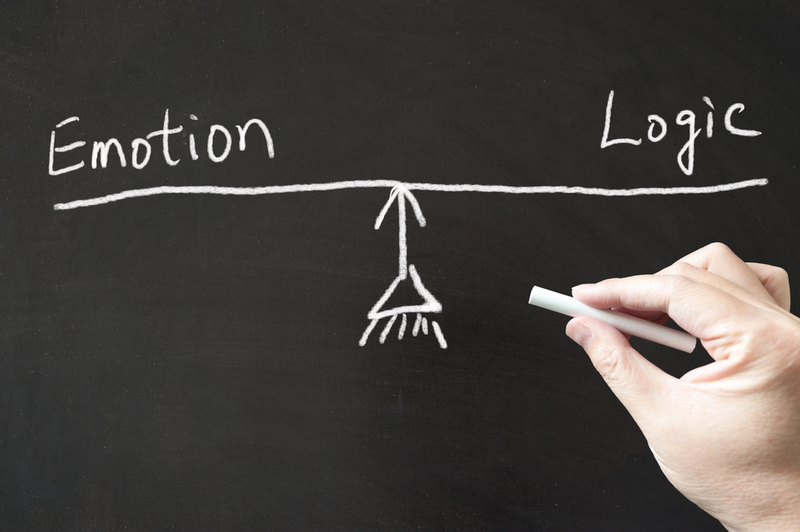Everyone’s talking about artificial intelligence these days … How it’s taking the place of human traders; how in the future, it may very well take over the whole trading business, leaving humans out in the cold and so on and so on. These doomsday scenarios, however, are far away, if they ever become reality, because human traders still have one major advantage over algorithms: the simple gut feeling.
Download a PDF version of this post as PDF.
So, is the gut feeling bad or good for trading?
Some feel that letting your gut instinct guide your trading decisions is basically the same as letting emotions guide control of your trades, which can have disastrous consequences. But, equating the gut feeling with emotions is a mistake. They are not the same thing.
Last year, a study led by the University of Cambridge found that traders trusting their gut feeling were much more successful than those ignoring it. And, traders in general were better at reading the signals of this gut feeling than non-traders. However, here’s one very important detail: this gut feeling that the scientists studied was not emotion or general intuition. It was what they call interoception.
This technical term sounds dry and dull, but it’s actually fascinating. It refers to your ability to sense signals in your body, such as your heartbeat, your breathing, or whether your stomach’s full or not. Don’t we all sense these signals? Actually, no – most people are barely aware of these unless, of course, they are put under immense stress when these signals become pretty loud, with heart racing, stomach clenching and head pounding.
StocksToTrade—now better than ever! We ushered in the New Year with some major advancements that include 3 unique features, exclusive to our Platform.
Traders, it turns out, can read these signals so well, sometimes, that they can count their heartbeats accurately without feeling their own pulse or putting their hand on their chest. Try to do it and you’ll see how challenging it is – unless you’re a star trader! It seems that the better a trader is at trading, the better they are at counting their heartbeats and, by inference, the other signals their bodies send them when they are about to make risky decisions.
And here’s something even more interesting: traders get better at reading their gut feeling with time. It makes sense, really, if we see this “reading ability” as a skill. The longer you do something, the better you get at it, so those traders who are best at listening to their bodies are also the ones with the longest careers. This sounds like great motivation to keep getting better at trading and learning to listen to what your body is telling you.
It’s worth noting here that an impromptu poll among 117 traders on Twitter had 52% say that they trusted their gut instinct a lot, while 24% said they tried to ignore it.
So, based on these findings, what are the chances of AI completely taking over financial markets? For now, not so great.
Here’s what the lead author of that study told media at the time it was released. “If we focus on conscious mind and model it as a piece of software we will conclude that humans are doomed. But, if we recognize that body and brain act as a single functioning unit…then we will also recognize how exquisitely we are constructed for rapid pattern recognition. Humans can indeed compete against the machines.” John Coates knows what he’s talking about – he used to be a trader before turning to academia in neuroscience and finance.
Be that as it may, we are bound to continue reading about more investment funds that rely partly or entirely on artificial intelligence.
This recent story, for example, talks about an actively managed fund that is entirely automated. It uses software that predicts market movements on the basis of huge quantities of historical data and makes trading decisions based on these predictions. The purpose of replacing people with software is the one you’re thinking of: eliminating emotions from the trading equation. But, at the same time, this eliminates the gut feeling from the equation and this may not be the best thing, if we are to trust those scientists and the traders who swear by their gut feeling.
We have pretty good reason to trust them, too. The gut feeling, intuition, interoception—call it what you like—can be honed over time, the scientific research suggests. In that, it is exactly like other skills, such as the ones you need to play sports or videogames. This story from golfing legend Gary Player sums it up pretty accurately.
The longer you play the trading game, the luckier you will become, as you learn to not lean on emotions but on reason and data and you also learn to better interpret the signals your body sends to your brain. No decision we make is entirely rational, there is also some emotional input involved. Minimizing it comes with time and experience. So does sharpening your intuition, your gut feeling.
Together, logic, data, and the gut feeling are bound to make for better decisions than just the former two. The moment when AI acquires intuition is the moment when machines will completely replace humans as traders. For now, that moment is far in the future.
You demanded it, and we delivered: StocksToTrade now offers Paper Trading and a new Trading Module. Our Paper Trading platform offers our customers a safe environment to practice trading without ever having to risk a cent of their capital to the market. By leveraging the real-time data provided with our service, the paper trading simulation offers an experience as close to real trading as possible. Learn more …
